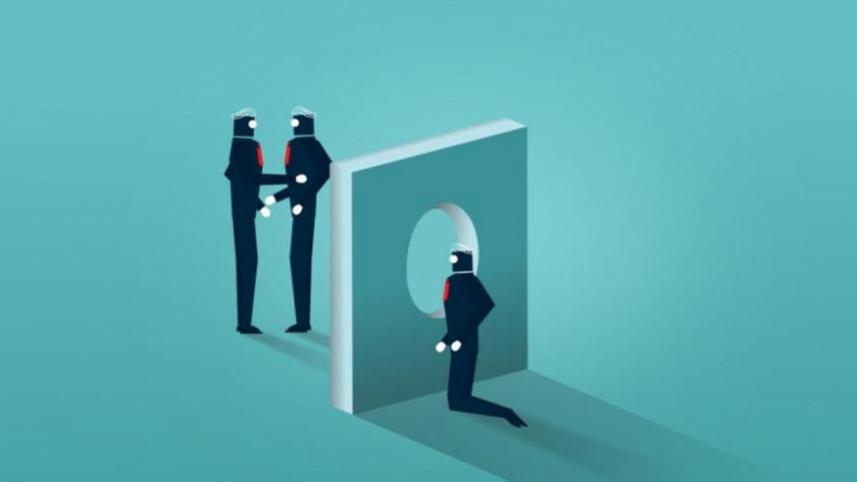Towards a democratic society, or a surveillance one?

On an issue that concerns every citizen of our country and their constitutional rights, 10 supreme court lawyers have filed a writ petition with the High Court, seeking its directives on the government to take necessary steps to prevent incidents of eavesdropping and recording of private phone conversations, to inform what necessary steps have been taken to prevent such incidents, and to ensure right to privacy of telecommunication. In recent years, there have been numerous incidents of eavesdropping and recording of private telephone conversations from various reports in the media. They show that the BTRC, delegated with the responsibility of ensuring privacy of telecommunication and upholding the sanctity of Article 43 of the Constitution, has failed in its duty.
The sudden release of personal conversations of people who are being politically harassed is clear proof that surveillance is taking place—at the very least, in the form of phones being tapped. These types of actions are nothing but attempts to manipulate society by using fear. When you leak someone's personal conversation, you create a society of fear and control, as people live in the assumption that every opinion they express is being monitored. It leads them to curtail their freedom of expression and live in an oppressed state of mind. And that is exactly what someone who would want to control society would ultimately want. These are all traits of a controlled society and are totally contradictory to a society of democracy and freedom.
The whole culture of surveillance, if we look at history, leads to the stifling of expression and creativity, leading to disastrous consequences for society as a whole. It has never led to democracy or to an advanced society. People who are in power at the moment may think that such surveillance mechanisms help them to control people in general and dissidents in particular. In reality, such control through surveillance almost always proves illusionary, leading to resentment and social tension, and is counterproductive to establishing a democratic society. In the 21st century, which is supposedly the age of ideas, surveillance is an anathema. It is the biggest cyber-security risk that any society can face—leading to mass public insecurity.
As soon as the Pegasus controversy started, we saw huge debates in almost every single country that it involved, including our next door neighbour, India. But no such debates concerning surveillance and people's privacy have been raised in our country, demonstrating the lack of concern of the authorities for this issue. The question is: why is the public silent? Is it because they are not interested, or because they are afraid? As a society, we owe ourselves an explanation. And we hope the HC sees that. If the state's authorities cannot ensure that the fundamental rights of the citizenry are protected, then they must be held accountable for their failures. And the failure to ensure that people's constitutional right to privacy—which is tied to other rights—is protected, can no longer be ignored.



 For all latest news, follow The Daily Star's Google News channel.
For all latest news, follow The Daily Star's Google News channel.
Comments